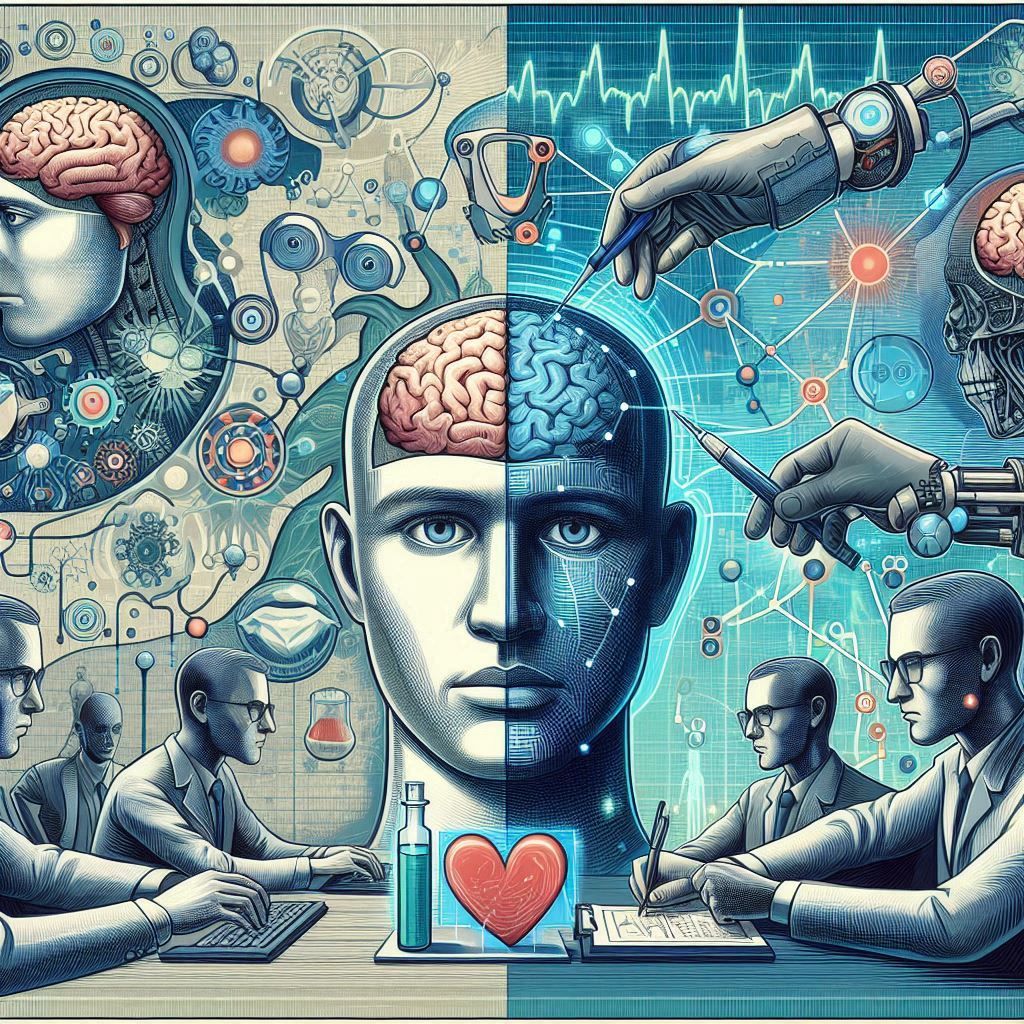Leveraging AI in the Treatment of Complex Neurotic Disorders
Artificial Intelligence (AI) is revolutionizing the medical field, offering groundbreaking solutions for the treatment of complex neurotic disorders. These disorders, including anxiety, obsessive-compulsive disorder (OCD), and post-traumatic stress disorder (PTSD), often present challenges in diagnosis and treatment due to their multifaceted nature. Here’s how AI is making a significant impact:
-
Accurate Diagnosis
AI algorithms, particularly machine learning models, can analyze vast amounts of data from patient histories, genetic information, and neuroimaging to identify patterns indicative of neurotic disorders. This leads to earlier and more accurate diagnoses, allowing for timely intervention. -
Personalized Treatment Plans

AI enables the development of personalized treatment plans by analyzing individual patient data, including symptoms, treatment responses, and lifestyle factors. Machine learning models can predict which therapies are likely to be most effective for specific patients, optimizing treatment outcomes. -
Monitoring and Predictive Analytics
Wearable devices and mobile apps integrated with AI can continuously monitor patients' physiological and behavioral data. This real-time monitoring helps in detecting early signs of relapse or exacerbation of symptoms, allowing for proactive adjustments to treatment plans. -
Virtual Therapy and Support
AI-powered chatbots and virtual therapists provide round-the-clock support for individuals with neurotic disorders. These tools can offer cognitive-behavioral therapy (CBT) techniques, track mood and anxiety levels, and provide coping strategies, ensuring consistent support between therapy sessions. -
Drug Discovery and Development
AI accelerates the drug discovery process by predicting how different compounds will interact with brain chemistry. This helps in identifying new medications that can more effectively target the underlying causes of neurotic disorders, potentially with fewer side effects. -
Enhanced Research Capabilities
AI aids researchers in analyzing large datasets from clinical trials and epidemiological studies. By identifying trends and correlations that may not be apparent through traditional analysis, AI contributes to a deeper understanding of neurotic disorders and the development of novel treatment approaches.
AI Instruments and Apps
1. Woebot: An AI chatbot that uses cognitive-behavioral therapy (CBT) techniques to help users manage their mental health.
2. Ginger: An app offering on-demand mental health support with AI-driven behavioral health coaching.
3. Mindstrong Health: Uses AI to monitor smartphone usage patterns to detect changes in mental health.
4. PEAR Therapeutics: Develops digital therapeutics combining AI with clinical research to treat various mental health conditions.
The integration of AI in the treatment of neurotic disorders holds great promise for improving diagnosis, personalizing treatments, and providing ongoing support. As AI technology continues to advance, its role in mental health care is set to expand, offering hope for better management and outcomes for individuals suffering from these complex conditions.
By embracing AI's capabilities and leveraging innovative instruments and apps, the medical community can make significant strides in treating neurotic disorders, ultimately enhancing patient care and quality of life.